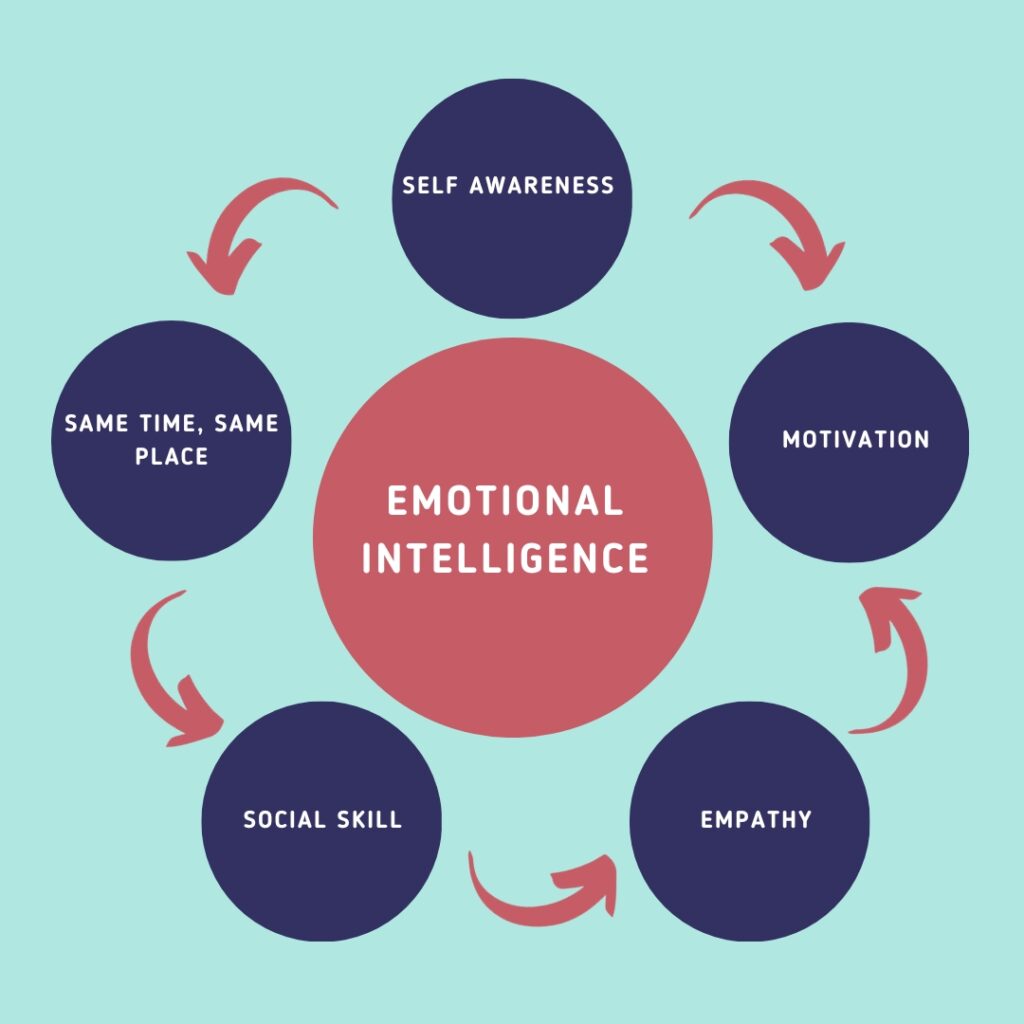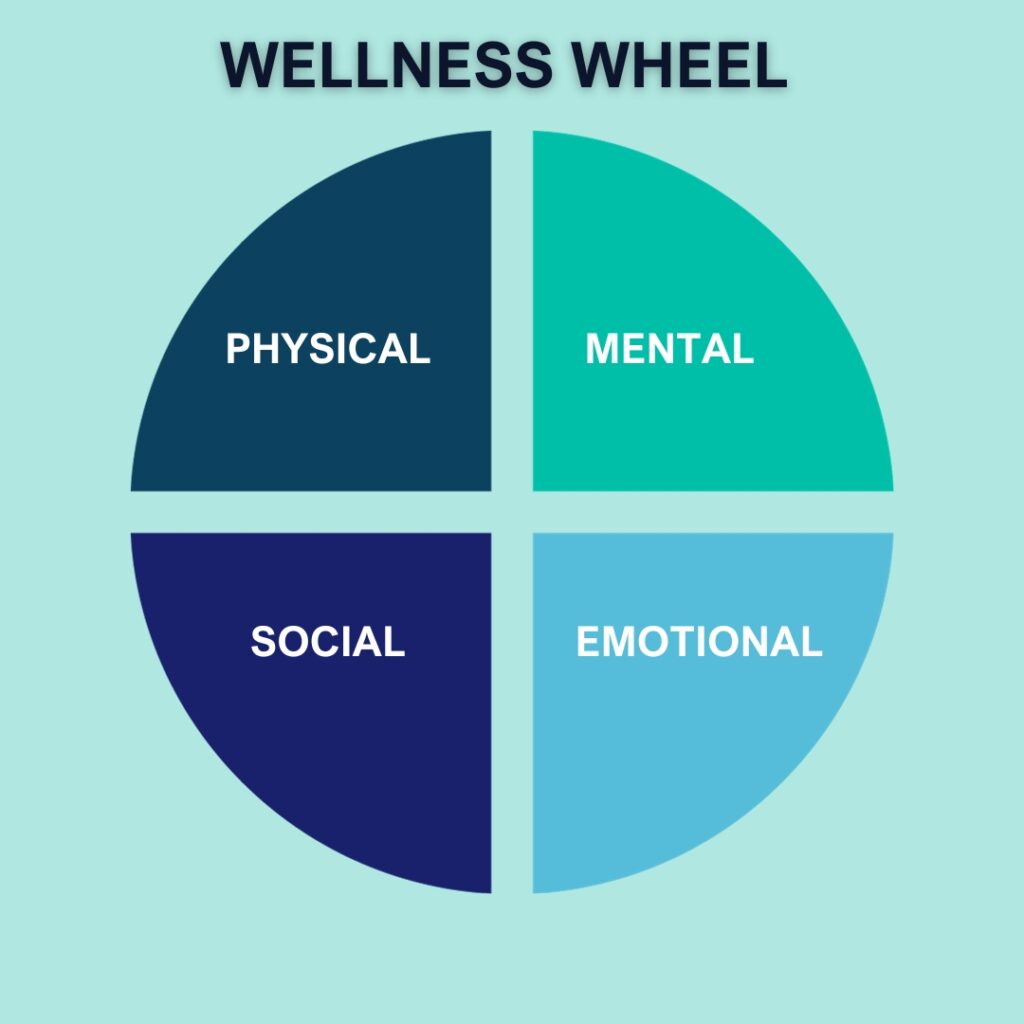In the dynamic landscape of the professional world, success is not solely measured by technical expertise or job proficiency. Increasingly, employers and professionals recognize the pivotal role of emotional intelligence and emotional wellness in driving career advancement and overall workplace satisfaction.
Can professional success be truly deemed fulfilling if leadership and excellence are limited to the workplace? Without corresponding personal fulfillment, can one fully appreciate such achievements? This exploration delves into the symbiotic relationship between emotional intelligence, emotional wellness, and professional growth, highlighting how a holistic approach contributes to both individual and organizational success.
Emotional Intelligence in the Professional Realm
At its core, emotional intelligence (EI) refers to the ability to understand and manage one’s own emotions while effectively navigating the emotions of others. In a professional context, high EI is a potent tool for success. Professionals with elevated emotional intelligence tend to excel in interpersonal relationships, communicate persuasively, and exhibit resilience in the face of workplace challenges.
One key aspect of EI relevant to professional growth is self-awareness. Professionals who possess a keen understanding of their emotions can leverage this awareness to make informed decisions, manage stress effectively, and adapt to diverse workplace scenarios. Moreover, self-management, another pillar of EI, enables individuals to regulate their emotions, maintaining composure even in high-pressure situation.

Social awareness and relationship management, the remaining components of EI, are equally vital in a professional setting. Professionals with a heightened sense of social awareness can navigate office dynamics with finesse, understanding the needs and concerns of colleagues, clients, and superiors. This skill is especially valuable in collaborative environments where teamwork and effective communication are paramount. Relationship management, fostering positive interactions, contributes to a healthy work culture, promoting collaboration and productivity in teamwork-focused environments.
The Impact of Emotional Wellness on Professional Success
Emotional wellness, which is also known as emotional health or emotional wellbeing, is a person’s ability to handle their emotions and the varied experiences they encounter in life. The National Center for Emotional Wellness defines emotional wellness as “an awareness, understanding and acceptance of our feelings, and our ability to manage effectively through challenges and change.”
Recognizing the vital connection between emotional well-being and a fulfilling life has become central to the wellness movement. Emotional wellness, a broader concept than emotional intelligence, significantly impacts job satisfaction, productivity, and the capacity to overcome challenges on the journey to professional growth.
Work-related stress is a common impediment to professional growth, and emotional wellness plays a pivotal role in stress management. Individuals with strong emotional wellness are adept at employing coping mechanisms that mitigate stress, promoting a more positive and productive work environment. The cultivation of mindfulness, a key component of emotional wellness, empowers professionals to stay focused on the present moment, reducing anxiety about the future and regrets about the past.
Self-care, an integral aspect of emotional wellness, involves prioritizing activities that rejuvenate and recharge. Professionals who prioritize self-care are better equipped to meet the demands of their roles consistently. Adequate sleep, regular exercise, and a healthy work-life balance are not only conducive to emotional wellness but also enhance cognitive function, contributing to improved job performance.

The Holistic Approach to Professional Growth
The synergy between emotional intelligence and emotional wellness creates a holistic framework for professional growth. Organizations that invest in fostering these qualities among their employees often reap the rewards of a positive and productive workplace culture. Moreover, professionals who actively develop their emotional intelligence and prioritize emotional wellness position themselves as valuable assets in any organizational context.
Continuous learning is a fundamental aspect of professional growth, and individuals can actively enhance their emotional intelligence through EI trainings, workshops, courses, and self-reflection. By sharpening their emotional intelligence, professionals become adept at handling workplace challenges, fostering innovation, and building strong, collaborative teams.
Conclusion:
The perception and emphasis on wellness differ widely among organizations, industries, and global regions. While many forward-thinking companies recognize the importance of employee wellness and invest in initiatives to support it, there are still instances where wellness might be overlooked or undervalued.
In conclusion, the integration of emotional intelligence and emotional wellness into professional development is a powerful strategy for nurturing individual growth and fostering success within organizations. As the business landscape continues to evolve, the importance of these emotional competencies becomes increasingly evident. By recognizing and prioritizing the holistic approach to professional growth, both individuals and organizations can create environments that thrive on collaboration, innovation, and overall well-being.





Leave a Reply